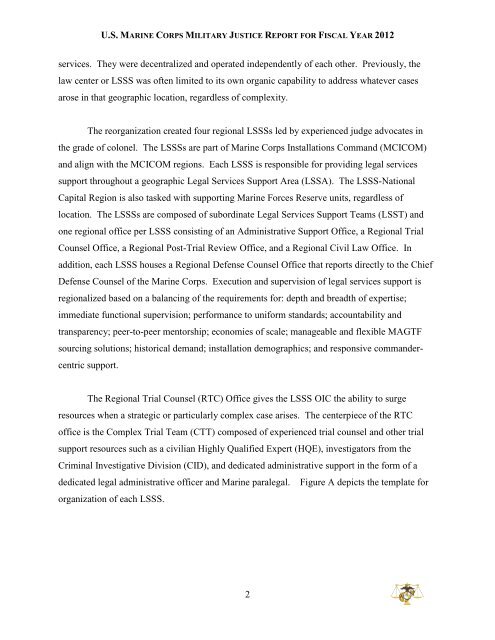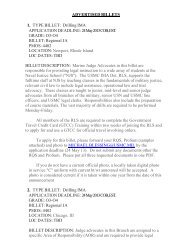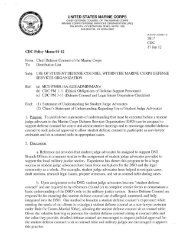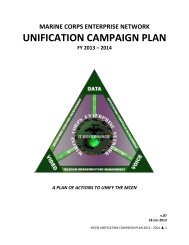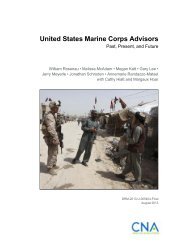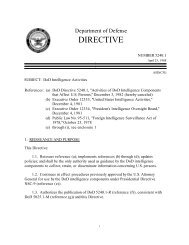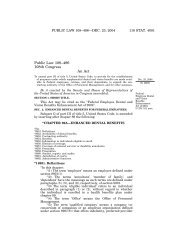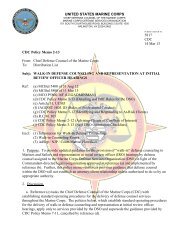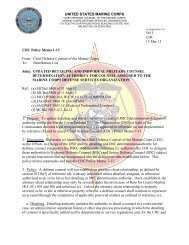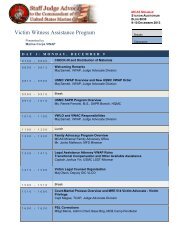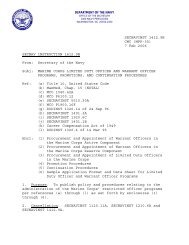FY2012 - Military Justice Report - Headquarters Marine Corps
FY2012 - Military Justice Report - Headquarters Marine Corps
FY2012 - Military Justice Report - Headquarters Marine Corps
Create successful ePaper yourself
Turn your PDF publications into a flip-book with our unique Google optimized e-Paper software.
U.S. MARINE CORPS MILITARY JUSTICE REPORT FOR FISCAL YEAR 2012services. They were decentralized and operated independently of each other. Previously, thelaw center or LSSS was often limited to its own organic capability to address whatever casesarose in that geographic location, regardless of complexity.The reorganization created four regional LSSSs led by experienced judge advocates inthe grade of colonel. The LSSSs are part of <strong>Marine</strong> <strong>Corps</strong> Installations Command (MCICOM)and align with the MCICOM regions. Each LSSS is responsible for providing legal servicessupport throughout a geographic Legal Services Support Area (LSSA). The LSSS-NationalCapital Region is also tasked with supporting <strong>Marine</strong> Forces Reserve units, regardless oflocation. The LSSSs are composed of subordinate Legal Services Support Teams (LSST) andone regional office per LSSS consisting of an Administrative Support Office, a Regional TrialCounsel Office, a Regional Post-Trial Review Office, and a Regional Civil Law Office. Inaddition, each LSSS houses a Regional Defense Counsel Office that reports directly to the ChiefDefense Counsel of the <strong>Marine</strong> <strong>Corps</strong>. Execution and supervision of legal services support isregionalized based on a balancing of the requirements for: depth and breadth of expertise;immediate functional supervision; performance to uniform standards; accountability andtransparency; peer-to-peer mentorship; economies of scale; manageable and flexible MAGTFsourcing solutions; historical demand; installation demographics; and responsive commandercentricsupport.The Regional Trial Counsel (RTC) Office gives the LSSS OIC the ability to surgeresources when a strategic or particularly complex case arises. The centerpiece of the RTCoffice is the Complex Trial Team (CTT) composed of experienced trial counsel and other trialsupport resources such as a civilian Highly Qualified Expert (HQE), investigators from theCriminal Investigative Division (CID), and dedicated administrative support in the form of adedicated legal administrative officer and <strong>Marine</strong> paralegal. Figure A depicts the template fororganization of each LSSS.2


